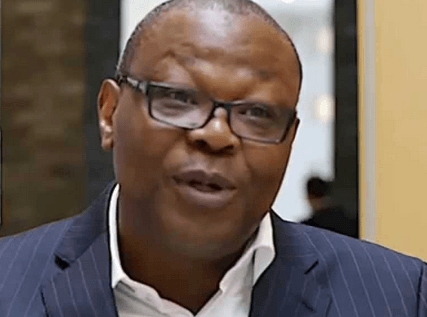ID card system held back as Ghana seeks to adopt ECOWAS biometric programme

The issue of a national ID card system has dogged Ghana for a long time. The issue, no matter how it is looked at, it is unanimously considered one of the sure solutions to the country’s socio-economic challenges, including general elections.
The country started a national ID card project in 2010, started distributing the cards, but the process was halted soon after, making the ID cards known as Ghanacard invalid.
But speaking to journalists on Tuesday September 13, 2016, Deputy Minister of Foreign Affairs, Emmanuel Bombande stated that, Ghana’s national ID card system is delaying because the country was preparing to adopt the ECOWAS biometric card system which was launched in July 2014.
Mr. Bombande, who was speaking at a one-day seminar for journalists on the theme ECOWAS Frameworks and Pro-Poor Policies, organized by the Media Foundation for West Africa (MFWA), lauded Ghana’s “enviable record where regional integration was concerned.” He said Ghana has been on the forefront of the efforts towards integration, both at the regional and continental levels.
Citing one major observation, Mr. Bombande said, majority of the 350 million ECOWAS citizens are often unaware of ongoing integration agreements.
“They are hardly carried along the formal processes. Integration is about people as it used to happen before our current borders were demarcated, it is about interaction, about trade and institutions,” he said.
Outlining the history of the ECOWAS from 1964, and pointing out some of the very significant protocols, treaties and agreements, he stated that as a result of conflicts in the region and the Liberian civil war, environments that impede economic development, the conflicts severely affected the pace and direction of regional cooperation. He said ECOWAS institutionalized conflict resolution, security and peacekeeping mechanisms as a result of these conflicts in the region.
He also noted that the Heads of State and Government adopted the ECOWAS Protocol on Democracy and Good Governance in December 2001 as supplementary to the Protocol relating to the mechanism for Conflict Prevention, Management, Resolution, Peacekeeping and Security, which was adopted in 1999 with the aim of addressing the root causes of conflicts.
He pointed out further that the mechanism seeks to strengthen the sub-region’s conflict prevention, management and resolution capacity, as well as build peacekeeping, humanitarian support and peace building capabilities.
Mr. Bombande while commending the regional bloc’s initiatives at ensuring free movement of goods and services, called for measures to develop the region’s productive capacity, remove all constraints and obstacles to intra-regional trade, improve quality of products from the region, to meet international standards and ensure macroeconomic stability to achieve increased investment and economic development.
On the ECOWAS biometric ID card he said, ECOWAS Heads of State and Government at their Summit in Accra on July 10, 2014 resolved to work assiduously towards abolishing resident permits for citizens of member states. They also mandated the ECOWAS Commission to work out the modalities for the adoption and eventual introduction of the biometric identity cards for Community citizens by the year 2016.
“The biometric ID card has since been launched, though Ghana is yet to start issuing it,” he said.
Mr. Bombande also warned about new conflicts of the future which can engulf the region, when very few people in the region get richer and the majority get poorer. He called for stability within the region so that ECOWAS will benefit from its potential for wealth creation.
Later during question time, he explained that, the need to adopt the ECOWAS card was the reason why, Ghana’s National ID card system has been has delayed.
In an earlier presentation, Mr. Ernest Ortsin of UNISPHERE Ghana shared the outcome of a study which showed that there is poor knowledge of ECOWAS Protocols in Ghana.
Dr. Philip Attuquayefio, a Senior Research Fellow at the Legon Centre for International Affairs and Diplomacy, also spoke on the ECOWAS Protocol on Democracy and Good Governance, which among others requires governments in the sub-region to work towards alleviating poverty.
He urged the journalists to focus on ECOWAS and write about the regional bloc, calling on them to be critical in their reportage.
During the seminar, Mr. Bombande launched a publication by the MFWA titled, “Know your ECOWAS”, and a group, the ECOWAS Journalists Network in Ghana was also launched.
By Emmanuel K. Dogbevi
Copyright © 2015 by Creative Imaginations Publicity
All rights reserved. This news item or any portion thereof may not be reproduced or used in any manner whatsoever without the express written permission of the publisher except for the use of brief quotations in reviews.
